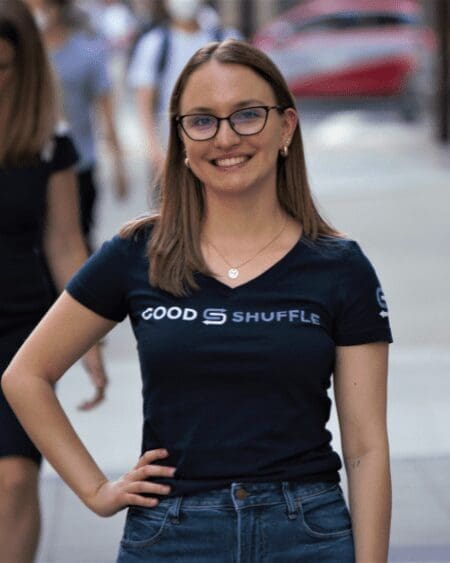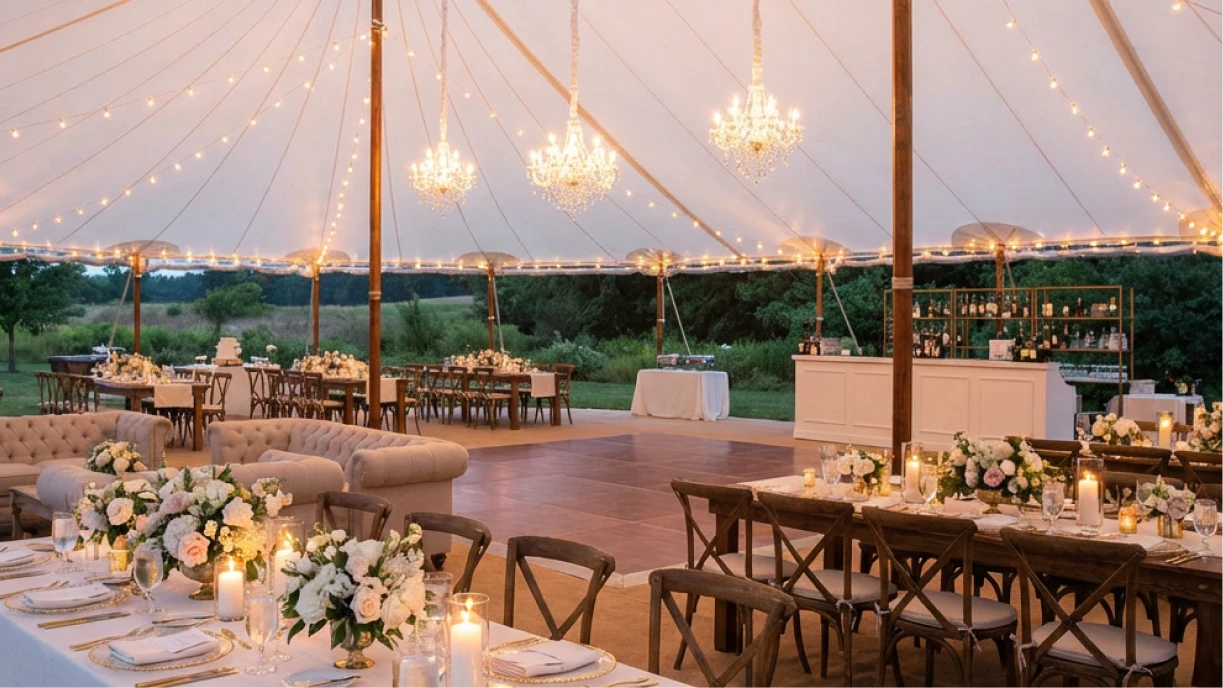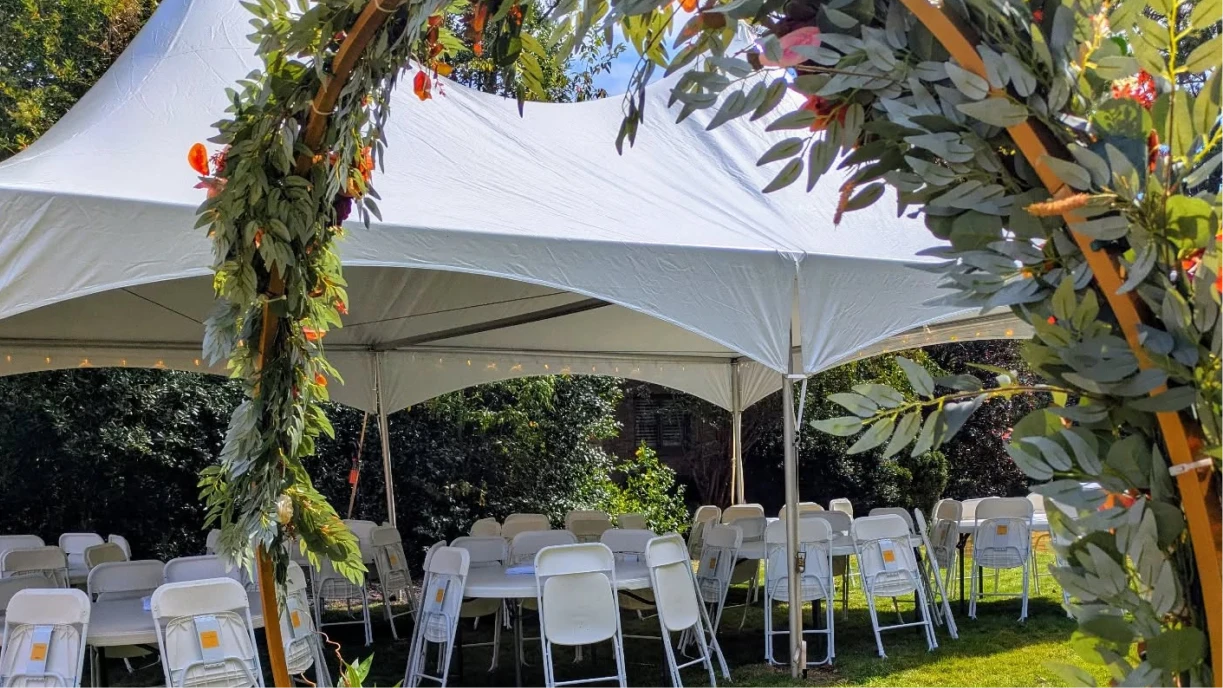There’s a general belief that if your prices are lower, you’ll get more business. While this is technically true, there are other issues that many business owners fail to take into account. There are real issues with the perception of quality, the type of clients you will inevitably attract, and your ability to sustain your company (and/or sanity) on bargain basement prices. It’s no secret that a big part of the events business is word of mouth— reputation is everything. Do you really want to be known as the bottom shelf vodka, cheap lawyer, or single-ply toilet paper of the events industry? We didn’t think so.
While “it gets the job done” is one way to approach your business, getting the job done with class and style is a much better way to approach memorable events. So don’t short change the value you bring to the table— charge what you’re worth!
Events are not commodities
The idea that you should set your prices low comes from commodities pricing — think groceries, retail, etc. For commodities, searching for bargains can make a lot of sense! But when it comes to, say, lawyers or electricians, you may want to pay a little more for quality and experience so you don’t end up with a lawsuit or a house fire. Not only are you paying for their time, you’re paying for their experience, training, and knowledge. The events industry works the same way; events are not commodities, they’re services.
Another drawback of setting your prices too low is being viewed as “cheap.” Not inexpensive. Cheap. Cheap wedding. Cheap retirement party. Cheap baby shower. The connotations there are cringeworthy. And the worst part of it is that it may not even be a reflection of you, your rental items, or the way you do business — people just don’t value things that cost less the same way they view things that are more expensive. This phenomenon has been documented multiple times, but was popularly demonstrated in experiments performed by the Stanford Graduate School of Business and the California Institute of Technology, where researchers took the same bottle of wine and assigned different prices to it. Participants consistently rated the more expensive wines as better tasting and more enjoyable than the less expensive wines, even though it was the exact same wine in disguise. Why? Perceived value. You expect more expensive things to be better, so you perceive them to be better.
The “Bargain Hunter” client
Another major downside of setting your prices too low is the clientele. People who constantly search for “the best deal” — the Bargain Hunters — are fickle. Don’t expect any sort of customer loyalty, as they are probably only working with you because of your prices. If someone comes along with “better” prices, they’ll leave you for the cheaper price tag in a heartbeat.
They also tend to be more difficult. The first example that springs to mind is the people who are willing to commit physical violence over products at Black Friday sales, but this probably isn’t something you’ll run into in the events industry. They are, however, more prone to complain, file disputes, demand refunds, and demand more “freebies” than standard clientele. I like to think of this as a “Give a Mouse a Cookie” mentality. They are also more likely to file disputes with you, as the perception is that a cheap business won’t have the money to take them to court over a falsified credit card dispute.
Battle to the bottom
If you are trying to be the least expensive option, prepare for constant price battles. Someone will constantly be trying to beat your deals and you will run yourself and your team ragged with constant events. Contrary to how it sounds, being that flush with business is not necessarily a good thing. Be prepared to give your second best to your clients, as you won’t have time to give them quality attention. You’ll also probably struggle financially, as you’ll still need to find a way to cover the business hours that are not billable (hello, administrative work, sales, marketing, etc).
Remember that when you’re working an event, you won’t be able to do the administrative tasks that are required to run a business, and vice versa. Keeping this pace isn’t sustainable long-term. I liken it to the staple college diet of ramen noodles: sure, you can live off of it for a while, but eventually you’ll have to make a change or you’ll develop serious health issues. Let these second rate clients keep your competition spinning in circles!
Charging more will make you a better business
Charging more will lessen your client load, but that’s not necessarily a bad thing. Play your cards right and you could very well still be making the same amount of money, or more. Fewer clients at a higher price point means those clients get more attention, and you’ll have the funds to cover your non-billable work. This is a key calculation many entrepreneurs miss when calculating their prices. You’ll also be able to invest in higher quality products for your inventory.
High price points and fewer clients also creates exclusivity. The extra time you’re now able to spend with your clients will show in the gorgeous events you’ll design. Commit to honing your craft and soon you’ll find yourself with a waiting list! Clients will brag about your luxury events to their friends and family, who will then also want to book you. Does all of this sound like a far fetched fantasy? It’s not, but it does take commitment, hard work, and guts — you’ll have to be able to back up your prices, after all.
The most important takeaway here is that you have to charge enough to be able to run your business AND give your clients the time and attention they deserve, so that you can continue to improve your business. It’s easy to short-change yourself and to fall for the fallacy of low-prices-equal-better-business. Just remember the old adage: You get what you pay for.
(Watch out for our future post on ways to increase your value!)






